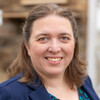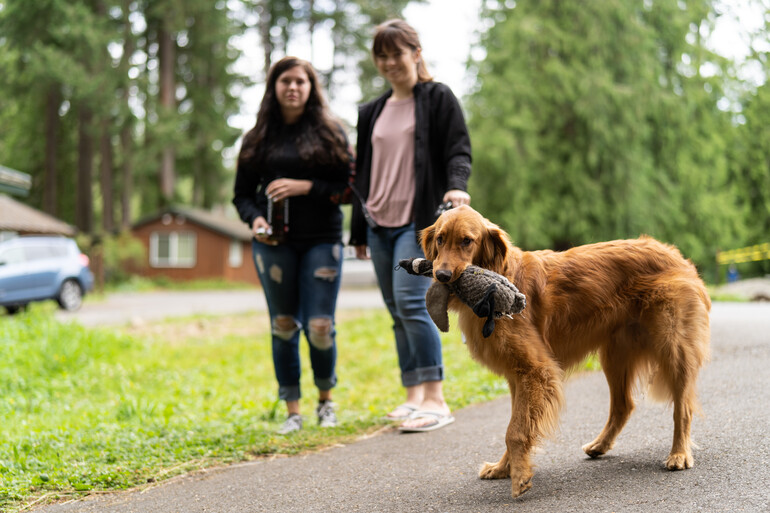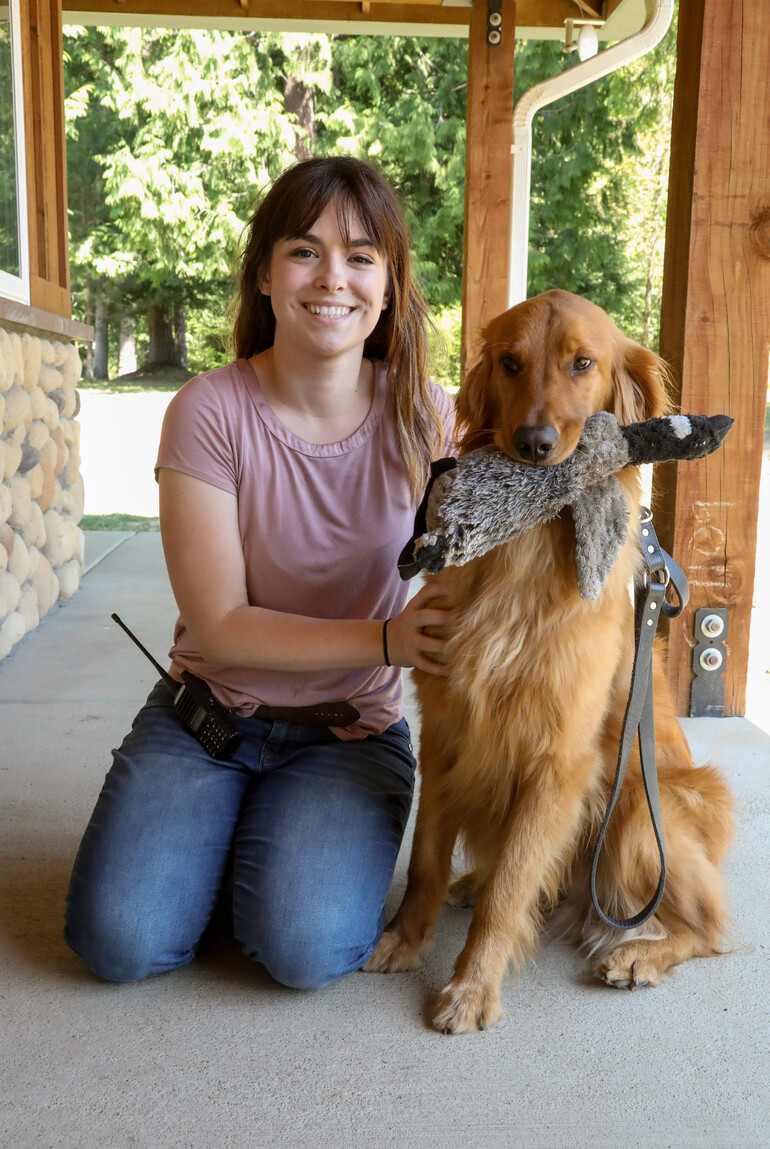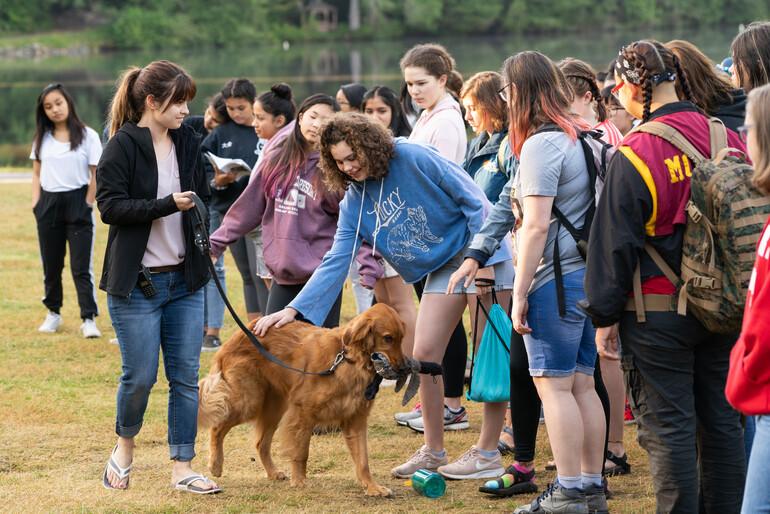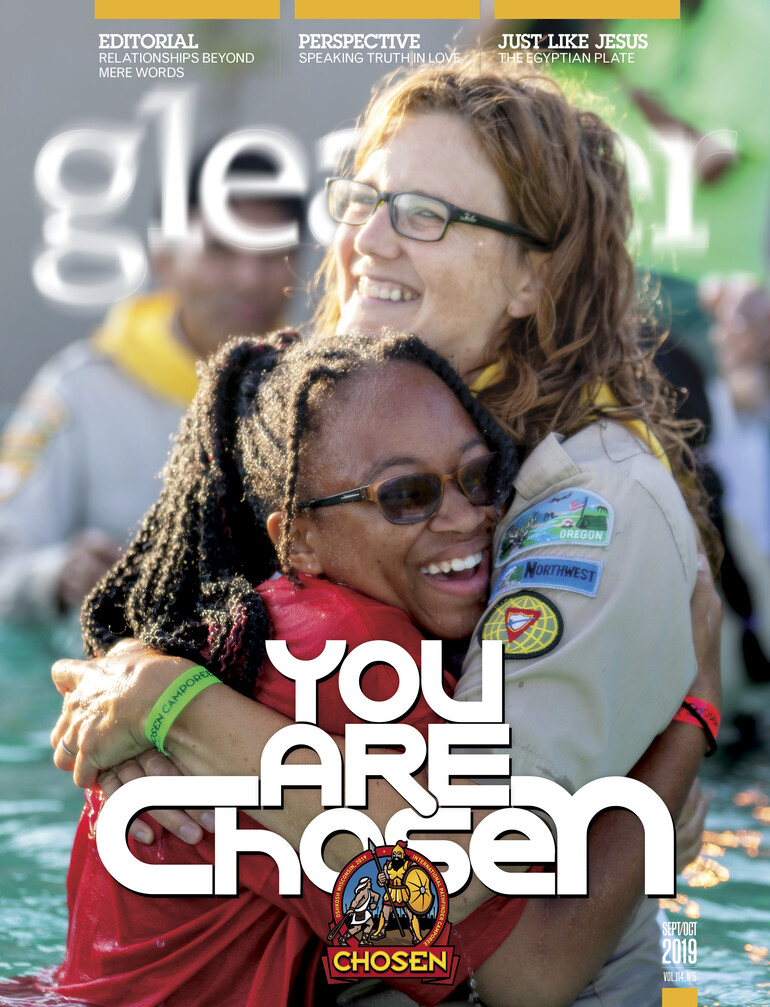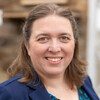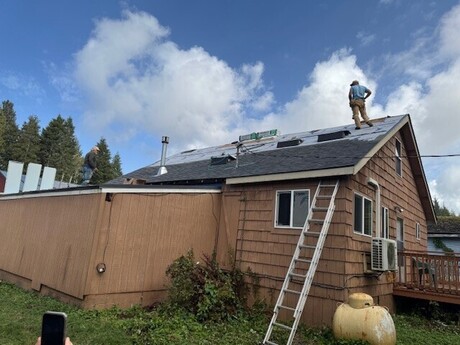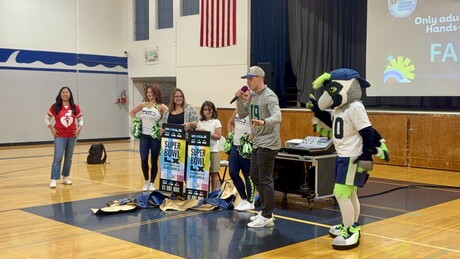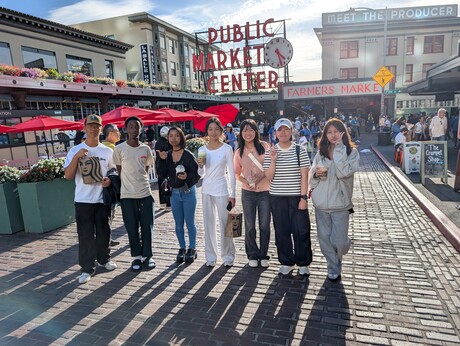It’s a Monday morning at Sunset Lake Camp in Wilkeson, and campers are lined up bright and early for line call. It’s the same routine for any age group.
“I’d like you to meet Kaylee and Gibbs,” David Yeagley, known as Pastor Dave at camp, announces to campers. “Kaylee and Gibbs are here to listen to you this week if you need someone to talk with.”
Kaylee and Gibbs then greet each cabin. Kaylee Sewell is a recent social work graduate from Walla Walla University. Gibbs is a well-behaved, 2-year-old russet-toned golden retriever.
Gibbs, with his feathery wagging tail, absorbs the attention. He has a specific mission: to break down barriers.
“Gibbs is a good opener,” Sewell says. “Anywhere I go, Gibbs goes with me. He helps campers calm down and open up to talk. Campers will often call out, 'Hi, Gibbs and Goose!'” (Goose is a stuffed toy that Gibbs carries around.)
Sewell is piloting a social worker role at Sunset Lake Camp as part of her practicum requirements. She was initially worried about having enough hours to complete the 400-hour requirement. After the first week of camp, that worry ceased.
In previous times, campers primarily dealt with feelings of homesickness when they came to camp. Now, the issues are bigger. Camp staff regularly encountering mental health challenges in campers who are processing anxiety, depression, panic attacks, bullying, life stressors, perfectionism and self-harm.
Sewell’s biggest surprise in her work is the number of suicide assessments. “Theories in the classroom become a reality when you are talking to a 9-year-old about why they should live,” she says. “This experience is growing me as a person and as a professional. It is strengthening my walk with God as I help people learn how to self-manage.”
Sewell and Gibbs show up at meal times, break times and social times to greet campers and provide an opening conversation from Monday to Friday. Weekends are self-care time. Sewell is often the quiet presence, with her furry sidekick nearby, to help de-escalate a situation.
“I learned the power of animals this summer,” Sewell says. A dam of emotions breaks as a distraught young person pets Gibbs’ soft fur and then engages in a side-by-side conversation during which Sewell uses active and reflective listening.
There is never a “normal” day because there are new situations each day. Sewell documents her work, cooperates with camp nurses, and connects campers to follow-up counseling services and other resources. “It feels like a battle all week,” she says.
“Kids need a good, solid emotional foundation,” Sewell explains, “and camp is only a week long. But the memories and lessons learned at camp will impact them for longer than a week. I pray that things will go well at home and that campers will know they can turn to God to find peace and happiness.”




